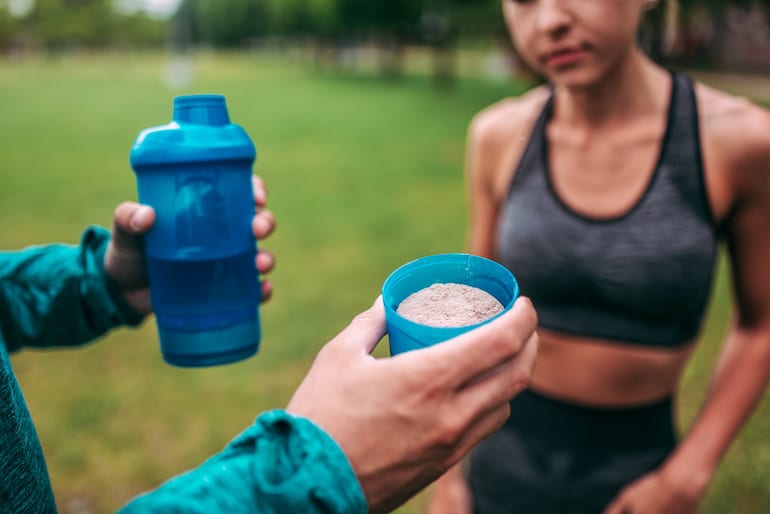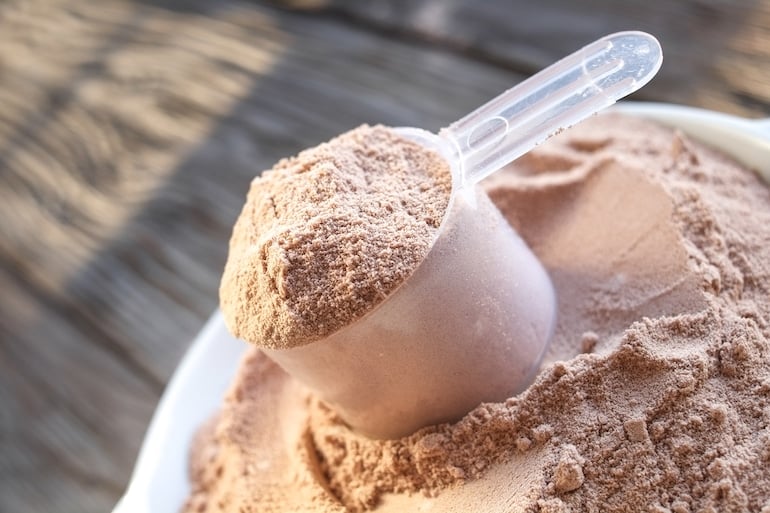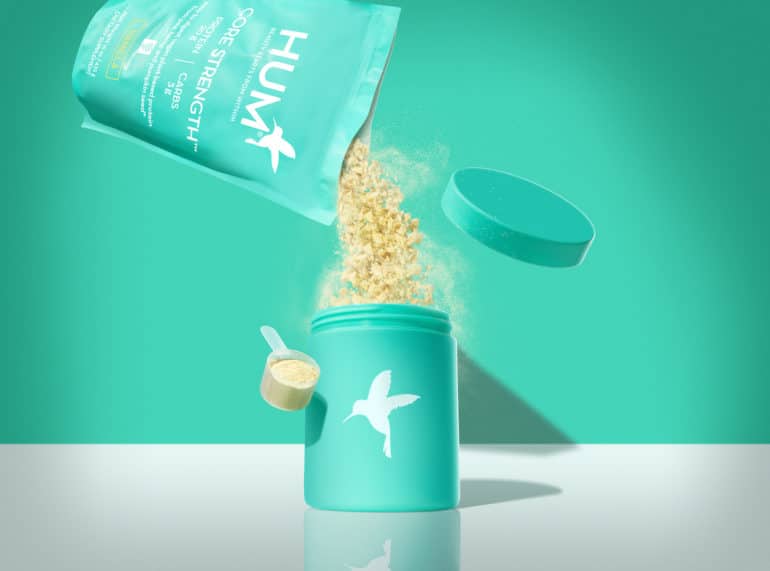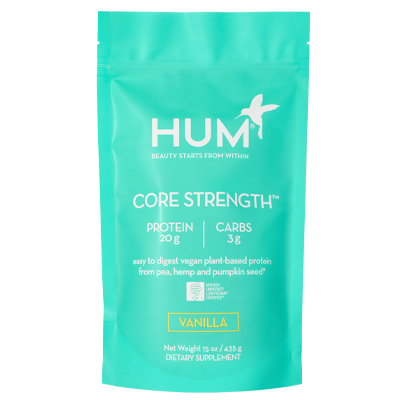A Dietitian’s Complete Guide to Protein Powders
Are Protein Powders Really Necessary?
Nutritionally speaking, if you are eating an adequate diet – then no. You do not need a protein powder. In reality, many individuals struggle to meet protein needs. Perhaps you’re a vegetarian or vegan – or you have food allergies or sensitivities. Maybe you’re someone who works out constantly and your body needs extra protein for muscle recovery.
Whether medically necessary to fill in nutritional gaps, or for an athlete that needs to get extra protein in fast and efficiently, protein powders do have a place and purpose.
But how do you shop for a good protein powder? First, there are two types: whey and plant-based or vegan protein powders.
To understand how each works, we first need to understand what essential amino acids and complete proteins are.Essential Amino Acids & Complete Proteins
Amino acids are the building blocks of proteins. There are at least 20 amino acids the human body needs to function optimally. Some our body is able to produce on its own and others we need to get from our diet. Amino acids we can only get from food sources are called “essential amino acids.” There are nine total essential amino acids we need to get from our dietary sources. When a source of protein has all nine essential amino acids it is called a “complete protein.”By default, animal proteins naturally offer a complete profile of amino acids. By contrast, individual plant-based proteins are considered “incomplete proteins” because they only have some but not all of the essential amino acids we need.
However, you can easily combine different plant-based protein sources to achieve a complete amino acid profile. For that reason, you’ll see that plant-based powders tend to combine several sources of plant proteins.

Whey Protein Powders
What is whey, exactly? After milk has been curdled and strained, the remaining liquid is dehydrated and used in powder form. That’s whey. Whey protein powders generally mix well but can have a slightly chalky taste.When it comes to choosing whey powders there are three main forms including:
- isolate
- concentrate
- hydrolyzed
Isolate
Isolate means the protein comes from a whole food source and is filtered to remove trace contaminants or other components, giving you a very pure form of protein.
Concentrate
Protein concentrate yields a product that is lower in nutritional value but is a more affordable product.
Hydrolyzed Whey Protein
Finally, hydrolyzed whey protein goes through a process to make it more absorbable. This means it’s easier to digest – but again, a more expensive product.
You can also keep in mind that these different specifications are not mutually exclusive. For example, you can shop for hydrolyzed whey protein isolate as a very high-quality whey option.Who Should Avoid Whey protein powders
Because it is a dairy by-product, whey protein powders are not suitable for anyone on a vegan diet. Among omnivores, whey can also cause bloating due to the lactose content. If you experience bloating or indigestion with whey protein powders, you may benefit from opting for hydrolyzed whey or simply a plant-based protein powder instead.
Plant-Based or Vegan Protein Powders
Plant-based or vegan protein powders are an excellent option for vegans, vegetarians, those who are lactose-intolerant, or anyone who wants to lower their carbon footprint by consuming less animal-based products. Again, a good vegan protein powder will combine a few plant proteins to ensure you receive all nine essential amino acids. The taste of vegan protein powders will vary based on the types of plant proteins used. Some of the best sources of plant proteins include:- pea protein
- hemp protein
- pumpkin seed protein
Other Protein Powder Qualities To Look For
Whether you’re committed to whey or plant proteins, here are other crucial factors you want to check for on the label and in reviews.Sweeteners
Many products use artificial sweeteners, dextrins, or high fructose corn syrups to create a sweet taste in their product. A better option is to choose products with “no added sugars” or that are “naturally sweetened.” This means the sweet flavor comes from things like monk fruit or stevia which are both natural ingredients.
Digestibility
Again, whey, soy, or bean-based protein powders can cause bloating or indigestion in some individuals. If you experience any of these regularly, you may want to opt for a low FODMAP certified protein powder formula. This means the product has been specifically designed to accommodate even very sensitive stomachs.
Alternatively, simply looking for added ingredients that support digestion such as probiotics or digestive enzymes may be helpful. For example, Core Strength includes flaxseed, enzymes, probiotics, and is low FODMAP certified to ensure healthy digestion.
Ease of Use
A protein powder should be easy to use. Look for protein powders that are designed to mix well. If you’re in a hurry, I recommend at least mixing with nut milk over water for a creamier taste. Of course, smoothies are an ideal way to use your protein powder. Adding banana, avocado, or nut butter to smoothies with protein will really help to emulsify the mixture into a smooth beverage.
For the adventurous, some protein powders are versatile enough to cook or bake with. (That’s right, protein powders do not just have to be used as a beverage!) For example, many people like to use a delicious vanilla protein powder in pancakes, oatmeal, baked cooks, or chia pudding.










